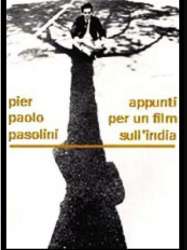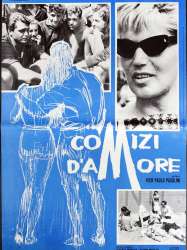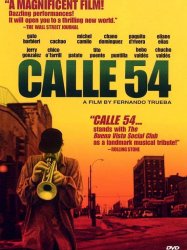Notes Towards an African Orestes is a italien film of genre Documentary directed by Pier Paolo Pasolini released in USA on 2 january 1981 with Gato Barbieri
Notes Towards an African Orestes (1975)

If you like this film, let us know!
Released in USA 2 january 1981
Length 1h5
Directed by Pier Paolo Pasolini
OriginItalie
Genres Documentary
Themes Films about films, Films based on mythology, Documentary films about business, Documentary films about the film industry, Documentaire sur une personnalité, Films based on Greco-Roman mythology, Documentary films about films, Autobiographical documentary films, Films based on Greco-Roman mythology
Rating66%










Notes Towards an African Orestes (Italian: Appunti per un'Orestiade Africana) is a 1970 Italian film by director Pier Paolo Pasolini about Pasolini's preparations for making a film version of the Oresteia set in Africa.
The film starts as a cinematic notebook of Pasolini scouting locations and actors with a voice-over of his thoughts -- "perhaps this will be my Electra". Back in Rome, there is a sequence with a jazz group playing. He then invites a group of African students at the University of Rome to review his notes and comment. They politely but clearly tell Pasolini that the primeval Africa he imagined had little to do with the complex, diverse reality and that treating it as a primal setting for an ancient European story was foolish. They appear to be amusedly patronised by Pasolini's implication that social progress in Africa via the adoption of Western education systems should be distrusted in favour of his romanticised ideals of communal tribal systems and the dignity of labour.
The African Orestes was never made. It is implied towards the end of the documentary that Pasolini himself was having doubts concerning his own idea.
The film was screened at the 1976 Cannes Film Festival, but was not entered into the main competition.
^ "Festival de Cannes: Notes Towards an African Orestes". festival-cannes.com. Retrieved 2009-05-10.
Synopsis
En 1969, Pasolini voyage à travers la Tanzanie et l’Ouganda à la recherche des décors et des personnages de son prochain film : une adaptation de L'Orestie" d’Eschyle dans l’Afrique contemporaine. Il commente à voix haute, interroge les visages, les paysages, les situations et lit de larges et significatifs passages d’Eschyle. Il confronte ses idées, ses notes de voyage avec un groupe d’étudiants africains installés à l’université de Rome. Le film ne verra jamais le jour, mais ces notes filmées (et montées) par le cinéaste offrent une médiation sur l’indépendance, les promesses de la démocratie et le passage de l’âge archaïque à la civilisation moderne.Actors

Gato Barbieri
(Self - Musician: Saxophone)

Pier Paolo Pasolini
(Self (uncredited))
Comments
Leave comment :
Suggestions of similar film to Notes Towards an African Orestes
There are 11 films with the same actors, 23 films with the same director, 8961 with the same cinematographic genres, 3615 films with the same themes (including 0 films with the same 9 themes than Notes Towards an African Orestes), to have finally 70 suggestions of similar films.If you liked Notes Towards an African Orestes, you will probably like those similar films :

Notes for a Film in India (1968)
Directed by Pier Paolo Pasolini
Genres Documentary
Themes Documentaire sur une personnalité
Actors Khwaja Ahmad Abbas, Pier Paolo Pasolini, Rajinder Singh Bedi
Rating70%





En Inde, Pasolini pose la question : « Donneriez-vous votre corps pour nourrir des tigres qui meurent de faim ? ».

Medea (1970)
, 1h50Directed by Pier Paolo Pasolini, Sergio Citti
Origin Italie
Genres Drama, Fantasy
Themes Films based on mythology, Films based on Greco-Roman mythology, Films based on plays, Dans la Grèce mythologique, Films based on Greco-Roman mythology
Actors Massimo Girotti, Laurent Terzieff, Piera Degli Esposti, Maria Cumani Quasimodo, Pino Colizzi, Enrico Maria Salerno
Rating68%





The first half sums up the story of Jason and the Argonauts as they travel to Medea's barbarian land in search of the golden fleece. In fitting with the soundtrack (which features North African tribal music), Pasolini depicts Medea's people as a tribal people who perform rituals and sacrifices to secure their harvests. Their costumes and dances are based on those of Eastern European Mummers such as the Romanian Calusari ceremonies and their counterparts in the Balkans.

Oedipus Rex (1967)
, 1h44Directed by Pier Paolo Pasolini
Origin Italie
Genres Drama
Themes Films based on mythology, Films about sexuality, Théâtre, Films based on Greco-Roman mythology, Films based on plays, Dans la Grèce mythologique, Films based on Greco-Roman mythology
Actors Silvana Mangano, Franco Citti, Alida Valli, Carmelo Bene, Julian Beck, Ninetto Davoli
Rating71%





A son is born to a young couple in pre-war Italy. The father, motivated by jealousy, takes the baby into the desert to be abandoned, at which point the film’s setting changes to the ancient world. The child is rescued, named Edipo by King Polybus (Ahmed Belhachmi) and Queen Merope (Alida Valli) of Corinth and raised as their own son. When Edipo (Franco Citti) learns of a prophecy foretelling that he will kill his father and marry his mother, he leaves Corinth believing that Polybus and Merope are his true parents.

La Rabbia (1963)
, 50minutesDirected by Pier Paolo Pasolini, Giovannino Guareschi
Origin Italie
Genres Documentary
Actors Pier Paolo Pasolini, Giorgio Bassani, Carlo Romano, Ava Gardner, Sophia Loren, Marilyn Monroe
Rating66%





Montage d'archives d'actualité des années 1950 et 1960

Scouting in Palestine (1965)
, 55minutesDirected by Pier Paolo Pasolini
Genres Documentary
Actors Pier Paolo Pasolini
Rating70%





Voyage de repérages en Terre Sainte.

Love Meetings (1965)
, 1h30Directed by Pier Paolo Pasolini, Vincenzo Cerami
Origin Italie
Genres Documentary
Themes Films about sexuality
Actors Pier Paolo Pasolini, Antonella Lualdi, Alberto Moravia, Graziella Granata
Rating75%





Typical for him, Pasolini's subject is sex: he questions representatives from a variety of social brackets on topics such as virginity, prostitution, homosexuality and sex education. The overarching themes are sexual ignorance, confusion and conservatism.

Pasolini l'Enragé (1966)
, 1h37Origin France
Genres Documentary
Themes Films about films, Films about writers, Documentary films about the film industry, Documentaire sur une personnalité, Cinéastes de notre temps
Actors Pier Paolo Pasolini
Rating62%





À Rome en juillet 1966, Pier Paolo Pasolini évoque ses parti pris cinématographiques, notamment au travers de ses films Accattone, Des oiseaux, petits et gros et de L'Évangile selon saint Matthieu.

Calle 54 (2000)
, 1h45Directed by Fernando Trueba
Origin Espagne
Genres Documentary, Musical
Themes Films about music and musicians, Documentary films about music and musicians, Documentaire sur une personnalité, Musiques du monde, Jazz films, Musical films
Actors Gato Barbieri
Rating73%





Un film présentant les performances de plusieurs stars de la scène musicale Latin Jazz.

The Decameron (1971)
, 1h52Directed by Pier Paolo Pasolini, Sergio Citti
Origin Italie
Genres Drama, Comedy, Comedy-drama, Fantasy, Historical
Themes Seafaring films, Films about sexuality, Transport films, Erotic films, LGBT-related films, Films about prostitution, Erotic thriller films, LGBT-related film
Actors Franco Citti, Silvana Mangano, Ninetto Davoli, Pier Paolo Pasolini, Angela Luce, Guido Alberti
Rating69%





The film, shot in Neapolitan dialect at the behest of the director, offers a variety of episodes from the stories most characteristic work of Giovanni Boccaccio, and are connected by the sequence of a pupil of the painter Giotto (played by Pasolini himself) who arrives in Naples to paint a mural.

December 12th (1972)
, 1h44Directed by Pier Paolo Pasolini
Origin Italie
Genres Documentary
Themes Films about terrorism, Documentary films about terrorism
Actors Renzo Montagnani, Gian Maria Volonté
Rating65%





Documentaire sur les attentats de la piazza Fontana du 12 décembre 1969 de Milan.
 Connection
Connection